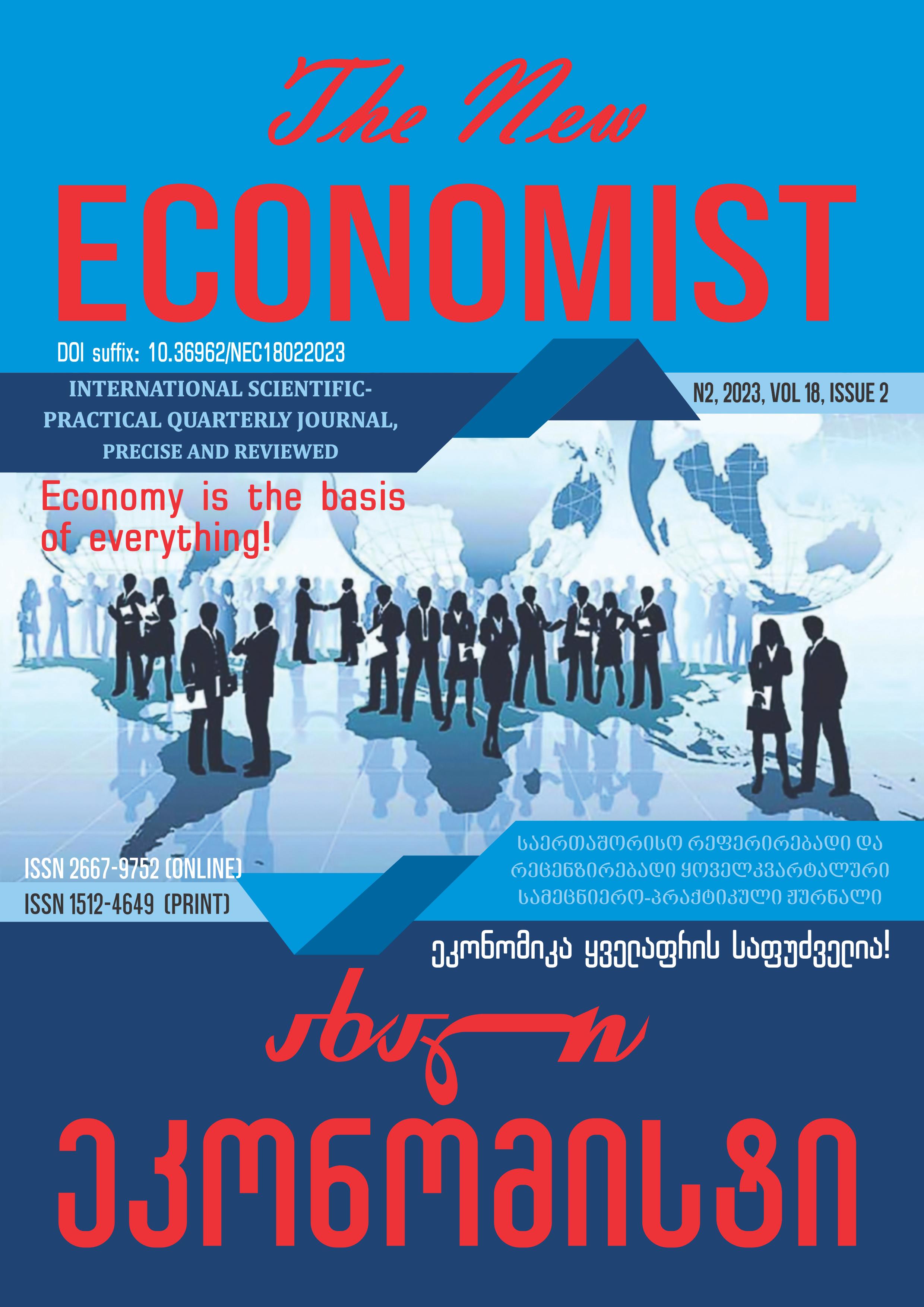ევროკავშირთან ასოცირების შეთანხმება და მისი მნიშვნელობა საქართველოსთვის
ანოტაცია
გასული საუკუნის 90-იანი წლებიდან მსოფლიო პოლიტიკურ რუკაზე საქართველოს რესპუბლიკამ კვლავ დაიწყო არსებობა როგორც დამოუკიდებელმა პოლიტიკურმა ერთეულმა. ახალგაზრდა ქვეყნის საგარეო თუ საშინაო პოლიტიკის წინაშე არაერთი გამოწვევა იდგა და საჭირო იყო მათი დარეგულირება. ერთი მხრივ, ქვეყანამ დეკლარირება გაუკეთა დასავლურ ვექტორს, მაგრამ, მეორე მხრივ, როგორ უნდა მოეხერხებინა მისი რეალიზება და შეძლებდა თუ ვერა ამ გზაზე მყარად სიარულს, რთულად განსასაზღვრი იყო.
თავის დროზე ის ფაქტი, რომ რუსეთის ფედერაციისათვის მიუღებელი იყო ყოფილი საბჭოთა სახელმწიფოების მიერ დამოუკიდებელი საგარეო პოლიტიკის გატარება, მაინცადამაინც შემაფერხებელ ფაქტორად არ აღიქმებოდა საქართველოს გადასახედიდან ევროპასთან ურთიერთობების ჭრილში. მაგრამ, წლების განმავლობაში გამოჩნდა, რომ ეს არ იყო მხოლოდ ნოსტალგია რუსეთისათვის და ფედერაციის მესვეურები, როგორც პირდაპირი სამხედრო აგრესიით, ასევე, ფიბრიდული ომის ყველა მეთოდის გამოყენებით, მიზანმიმართულად მუშობდნენ, რომ ხელი შეეშალათ საქართველოსათვის, რათა ვერ შეენარჩუნებინა დამოუკიდებლობა და ვერ მიეღწია განვითარების მაღალი სტანდარტებისთვის.
პრობლემების მიუხედავად, საქართველომ, მისი დასავლელი პარტნიორების დიდი თანადგომით, მოახერხა ის, რომ ურთიერთობები ევროპასთან მივიდა ასოცირების შეთანხმების ეტაპამდე. ამ შეთანხმებით იწყება ახალი ეტაპი საქართველო-ევროკავშირს შორის და ის გულისხმობს პოლიტიკური, ეკონომიკური და სოციალური ცხოვრების ყველა სფეროში მთელი რიგი რეფორმების გატარებას.
წყაროები
"Life of Kartli", edited by Simon Kaukhchishvili, volume 1, 1955;
The first Georgian parliamentarian women, last view: 27.02.2020, source: https://shorturl.at/7F6Eh
United Nations in Georgia, last view: 27.02.2020, source: http://www.ungeorgia.ge/geo/%E1%83%92%E1%83%90%E1%83%94%E1%83%A0 %E1%83%9D_%E1%83%A1%E1%83%90%E1%83%A5%E1%83%90%E1%83%A0%E1%83%97%E1%83%95%E1 %83%94%E1%83%9A%E1%83%9D%E1%83%A8%E1%83%98/%E1%83%A1%E1%83%90%E1%83%A5%E1% 83%90%E1%83%A0%E1%83%97%E1%83%95%E1%83%94%E1%83%9A%E1%83%9D_%E1%83%93%E1%83% 90_%E1%83%92%E1%83%90%E1%83%94%E1%83%A0%E1%83%9D#.XleMjSFKjIU
Georgia and the European Union, last view: 27.02.2020, source: http://old.infocenter.gov.ge/euinfo-georgia-history/#1
Association Agreement between Georgia and the European Union, last view: 06.03.2020, source: http://www.parliament.ge/ge/gavigot-meti-evrokavshirtan-asocirebis-shetanxmebis-shesaxeb/associationagreement1
Association Agreement, http://www.parliament.ge/ge/ajax/downloadFile/34753/AA
Association Agreement and Consolidation of Democracy in Georgia: Progress and Challenges, http://giss.org.ge/img/catalog_22.pdf;
Agreement on Deep and Comprehensive Free Trade Area (DCFTA) with the European Union, last view: 06.03.2020, source: http://www.economy.ge/index.php?page=economy&s=7
M. Manchkashvili, The issue of Turkey joining the European Union and its importance for Georgia, Bulletin of Oriental Studies, BSU, N2, p., 9-30, 2022, https://scholar.google.com/citations?user=7MCQSaIAAAAAJ&hl=en&gmla=AJsN-F6LmzO6veTfNlnMrsdMZLQir1W8K0331cinMSidO2s47LZ4V ngeYZwcsHvboM5qMav6u1XHrMRDuX0FEYGmxO8XN1Iw1w8uC7Ql7g9umK1aFFyOL3oIW1cVlsXj-eOqNpGlj74Z
M. Manchkhashvili, "The Platform of Six"-A New Model of Cooperation for the South Caucasus, Ivane Javakhishvili Tbilisi State University, Faculty of social and political science, conference book, pp., 7-12, 2021, https: //scholar.google.com/scholar?cluster=18249637199603228565&hl=en&oi=scholarr
The Doctrine of Turkey's Foreign Policy, Works, Department of Oriental Studies, Batumi Shota Rustaveli University, pp. 75-83, 2020, Batumi, Georgia, https://www.ceeol.com/search/article-detail?id=1013726.
Karchava, L., 2014. Again about the investment environment in Georgia or what kind of investor do we need? The New Economist, 9(3), pp.1-1.
Lomia, E. and Lomia, T., 2021. EU Policy in the South Caucasus Region and Georgia's Participation in the European "Neighborhood Policy" and the "Eastern Partnership" programs. The New Economist, 16(1), pp.1-1.
Manchkhashvili, M., 2018. Russia and the South Caucasus. International Scientific Journal "Messenger of Oriental Studies", 1(1), pp.73-90.
Lomia, T. and Lomia, E., 2020. Economic and Political Support of the European Union to Georgia: Retrospective Analysis of the EU-Georgia Relations. International Journal Vallis Aurea, 6(1), pp.35-43
Lomia, E. and Karchava, L., 2021. Georgian ethnopolitical conflict as a subject of confrontation between the USA and Russia. Journal of Liberty and International Affairs, 7(2), p.90.
M. Manchkhashvili, "The Platform of Six"-A New Model of Cooperation for the South Caucasus, Ivane Javakhishvili Tbilisi State University, Faculty of social and political science, conference book, pp., 7-12, 2021. Available at : https://scholar.google.com/scholar?cluster=18249637199603228565&hl=en&oi=scholarr
Maya, M., 2010. Turkey and security in the Southern Caucasus: the Caucasus Stability and cooperation Platform. Central Asia and the Caucasus, 11(4), pp. 87-93.
https://european-union.europa.eu/principles-countries-history/history-eu_en
https://european-union.europa.eu/priorities-and-actions/eu-priorities_en http://saunje.ge/index.php?id=1495&option=com_content&lang=ru
https://library.iliauni.edu.ge/wp-content/uploads/2017/03/40-vephkhistqhaosani.pdf https://digitallibrary.tsu.ge/book/2019/wignebi/sakartvelos-damoukidebeli-respublikis-entsiklopedia.pdf https://www.un.org/en/about-us/member-states#gotoG
https://eur-lex.europa.eu/legal-content/en/TXT/PDF/?uri=CELEX:22014A0830(02)
https://www.eeas.europa.eu/eeas/european-neighbourhood-policy_en
https://eur-lex.europa.eu/legal-content/en/TXT/PDF/?uri=CELEX:22014A0830(02)

